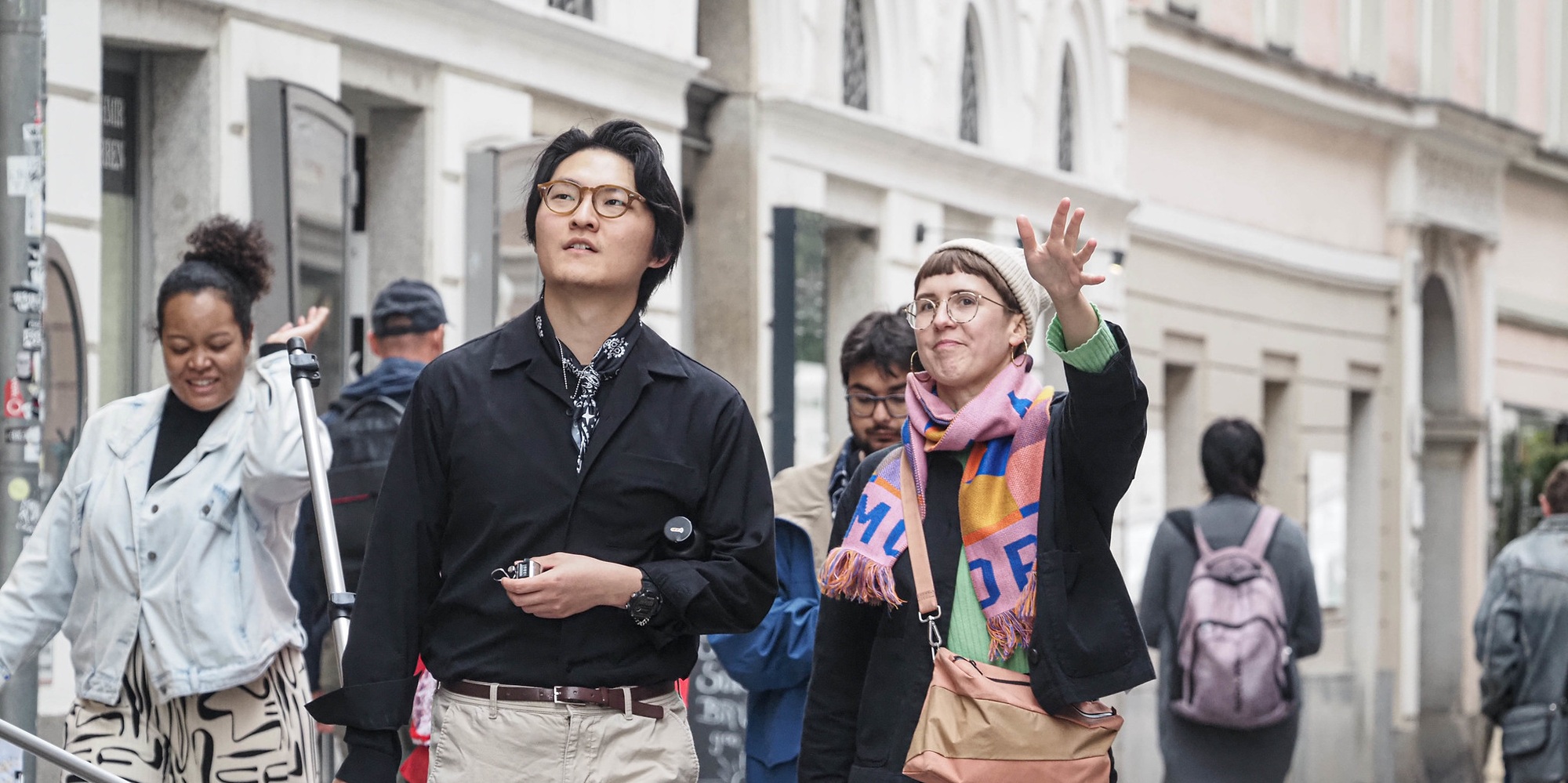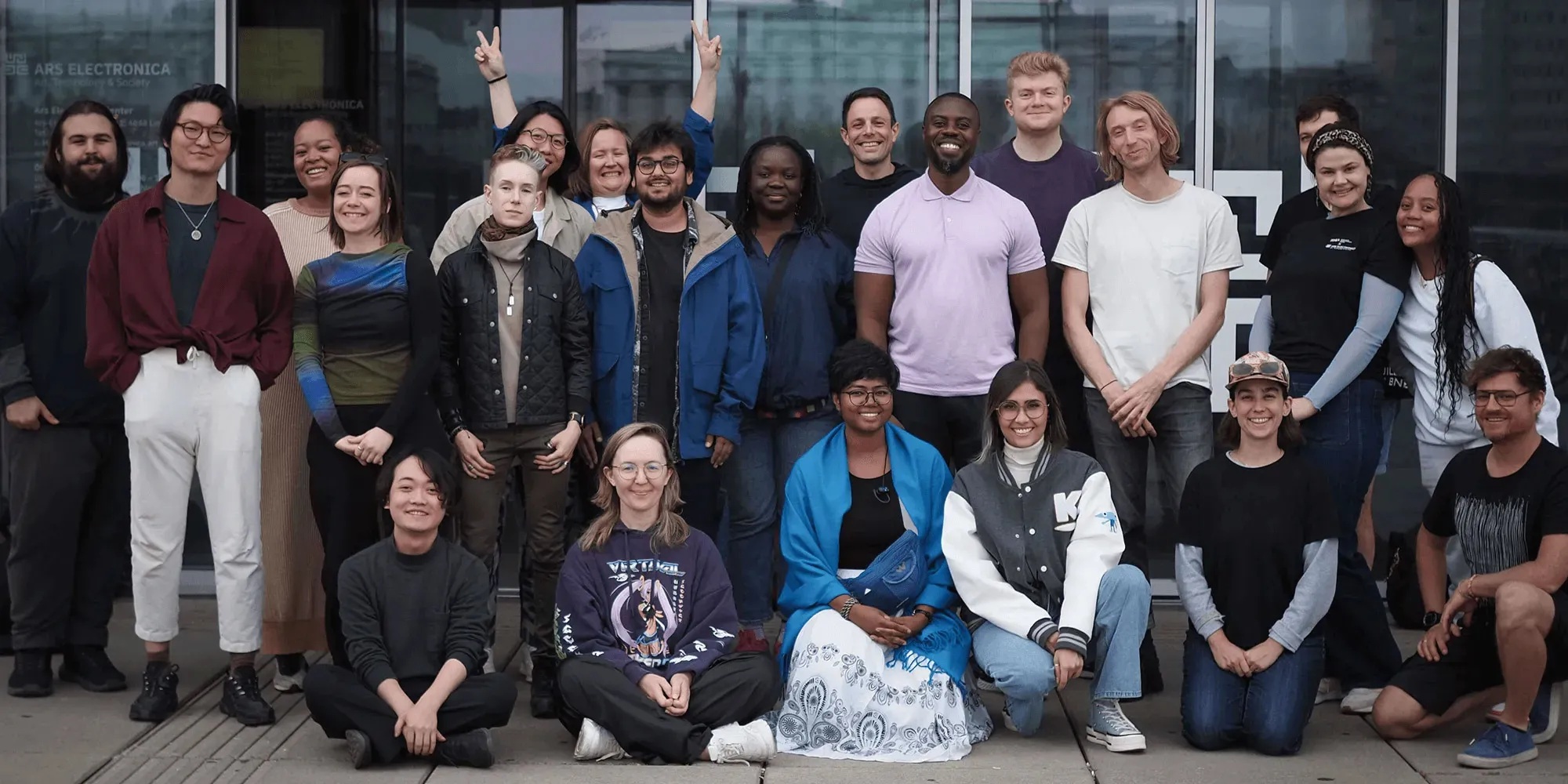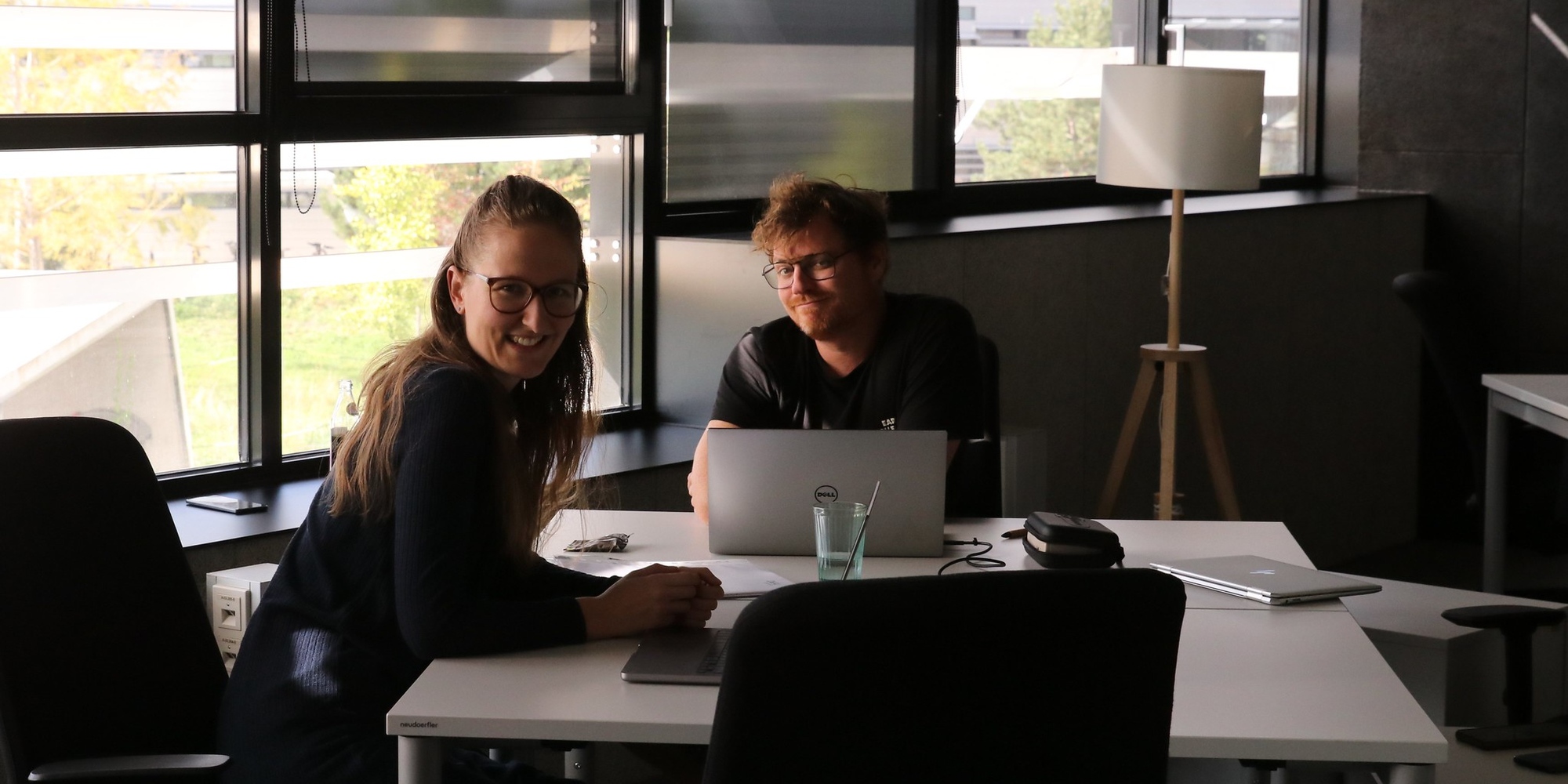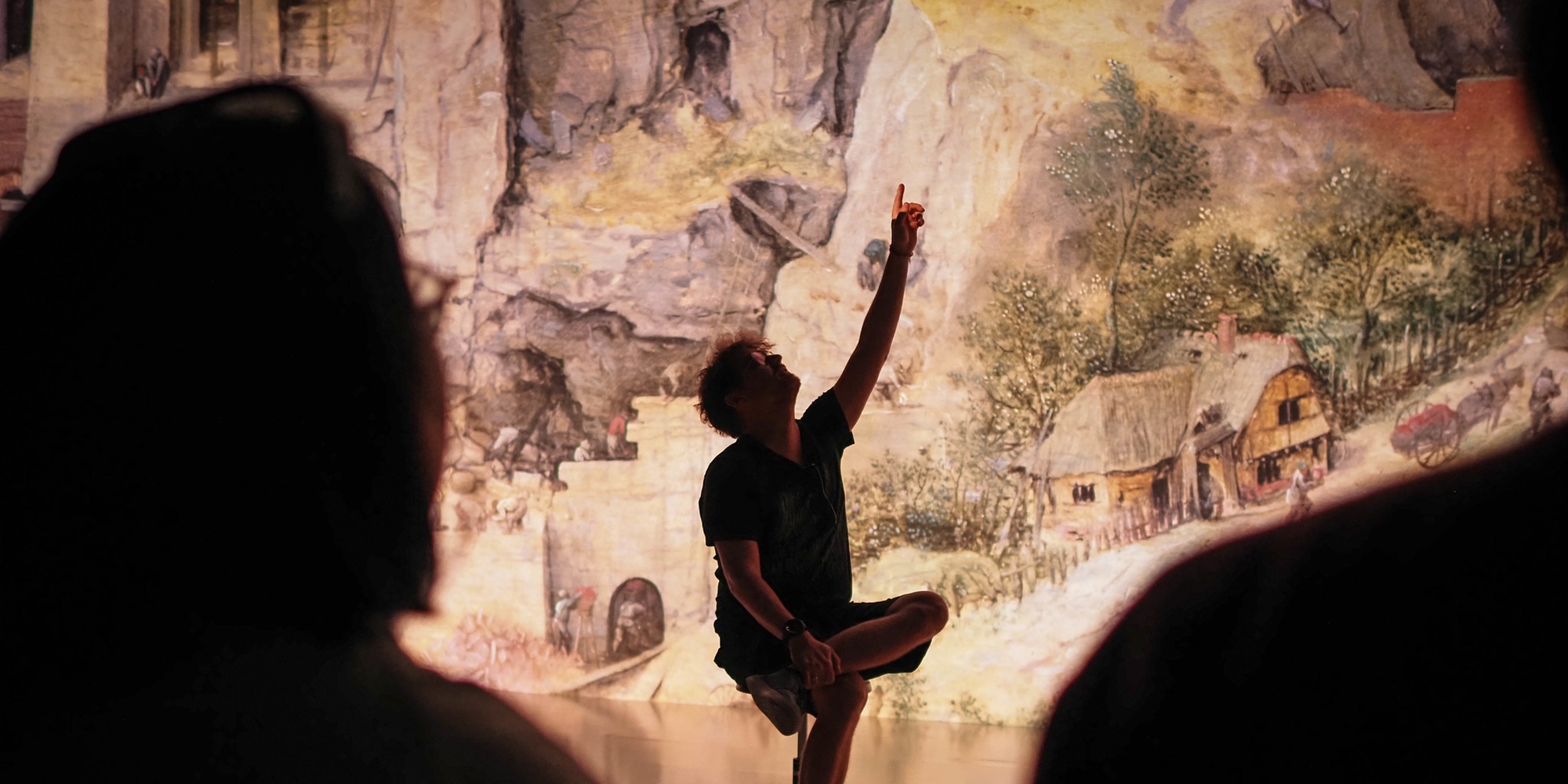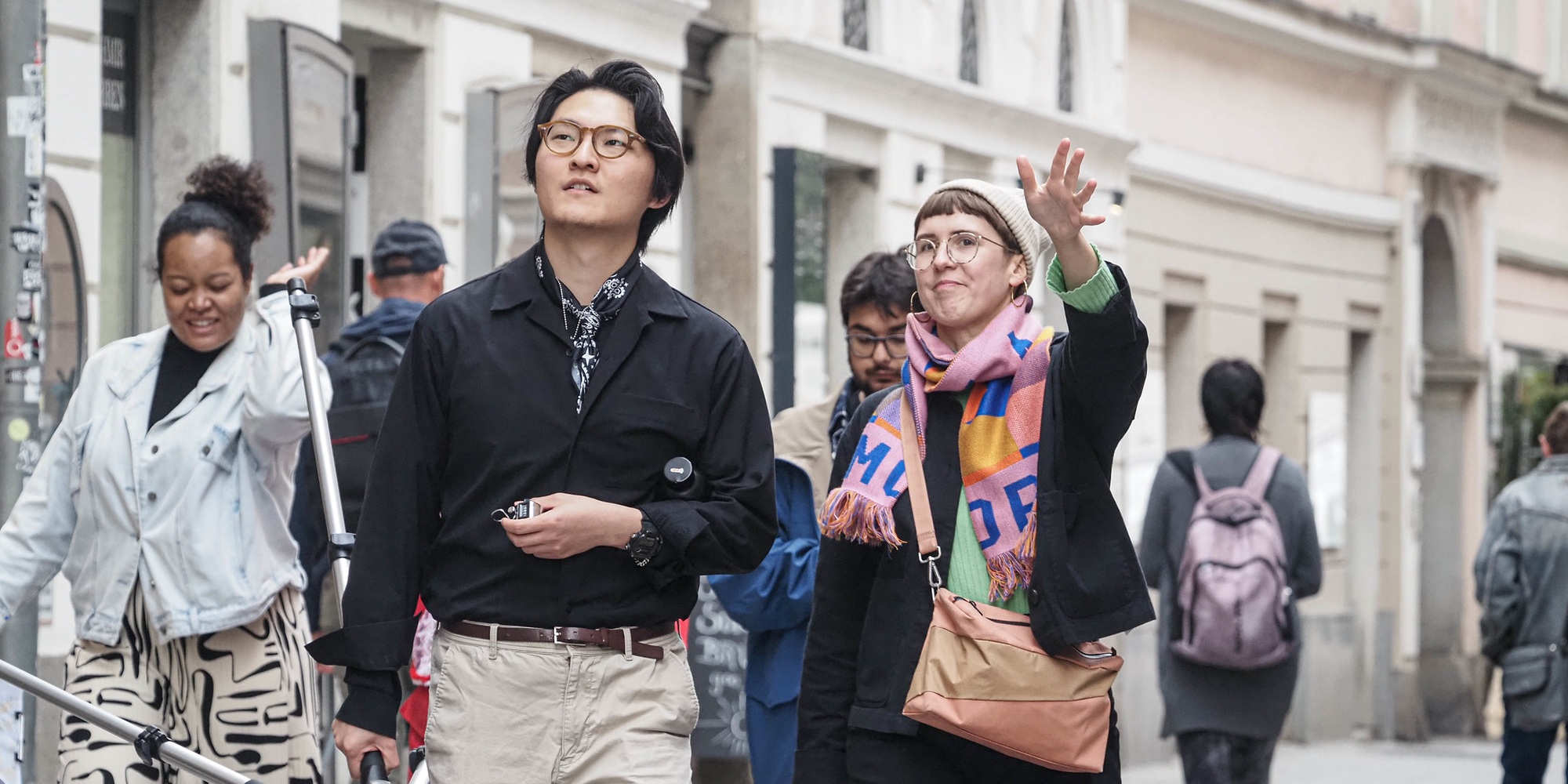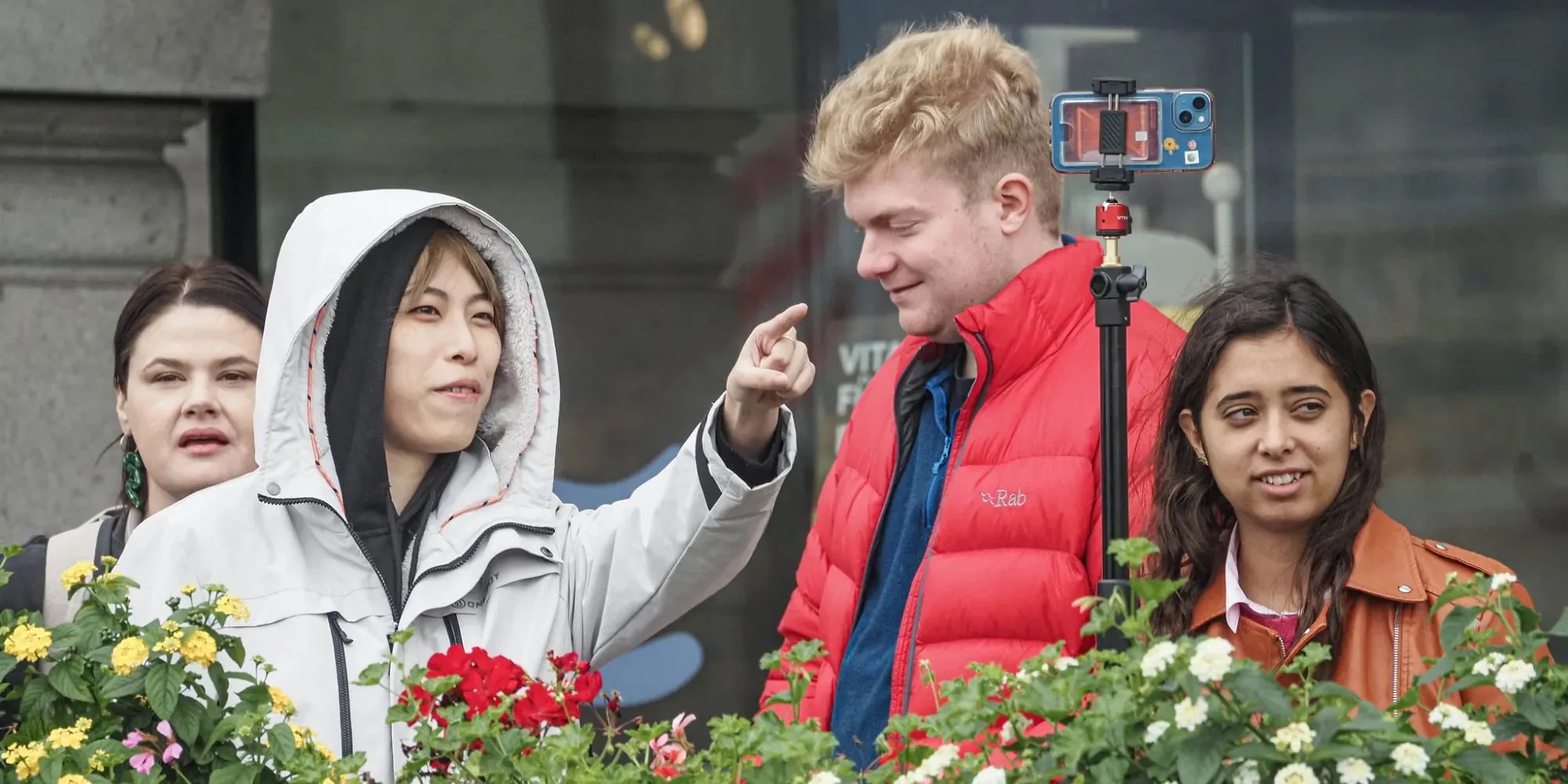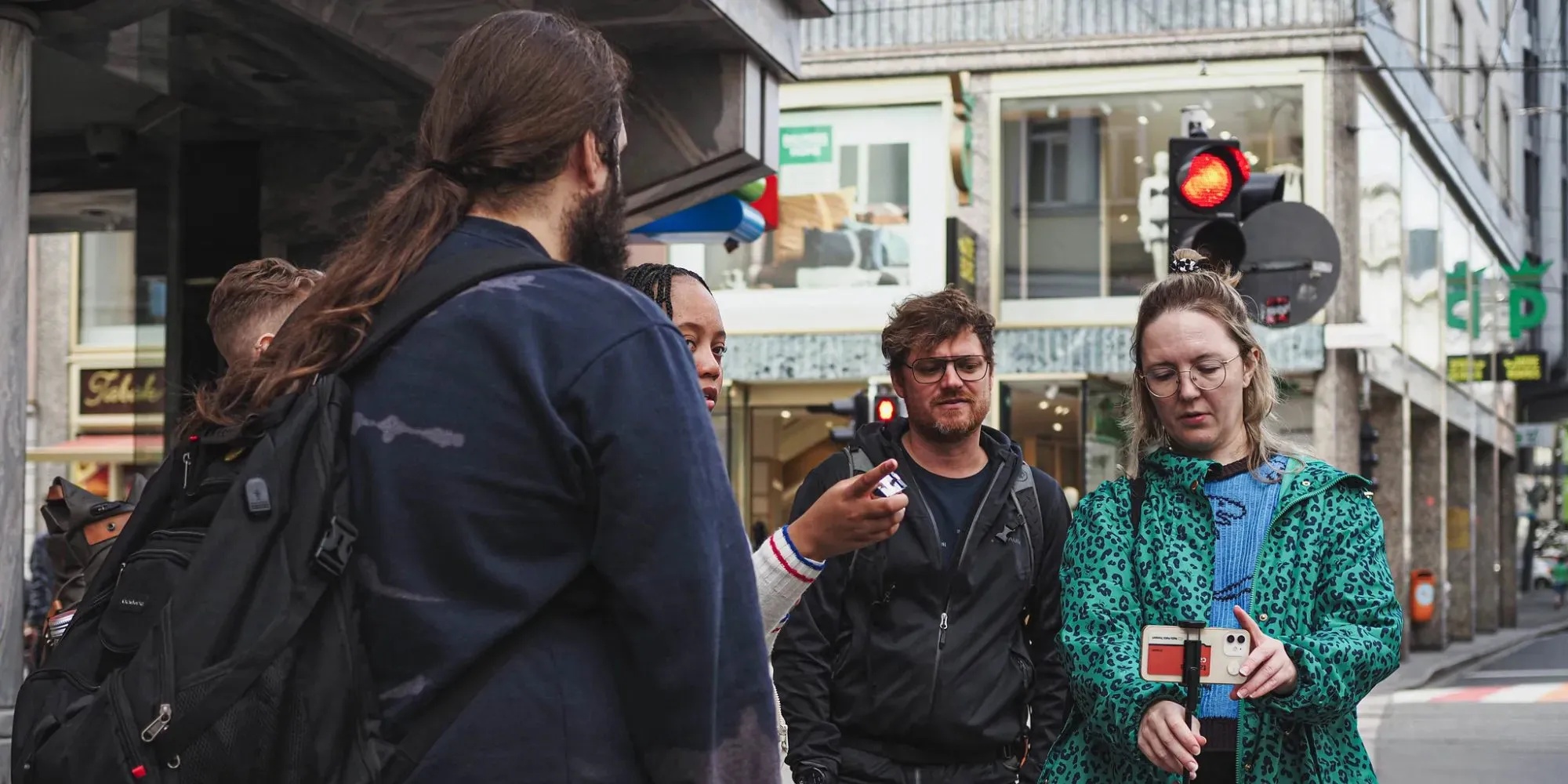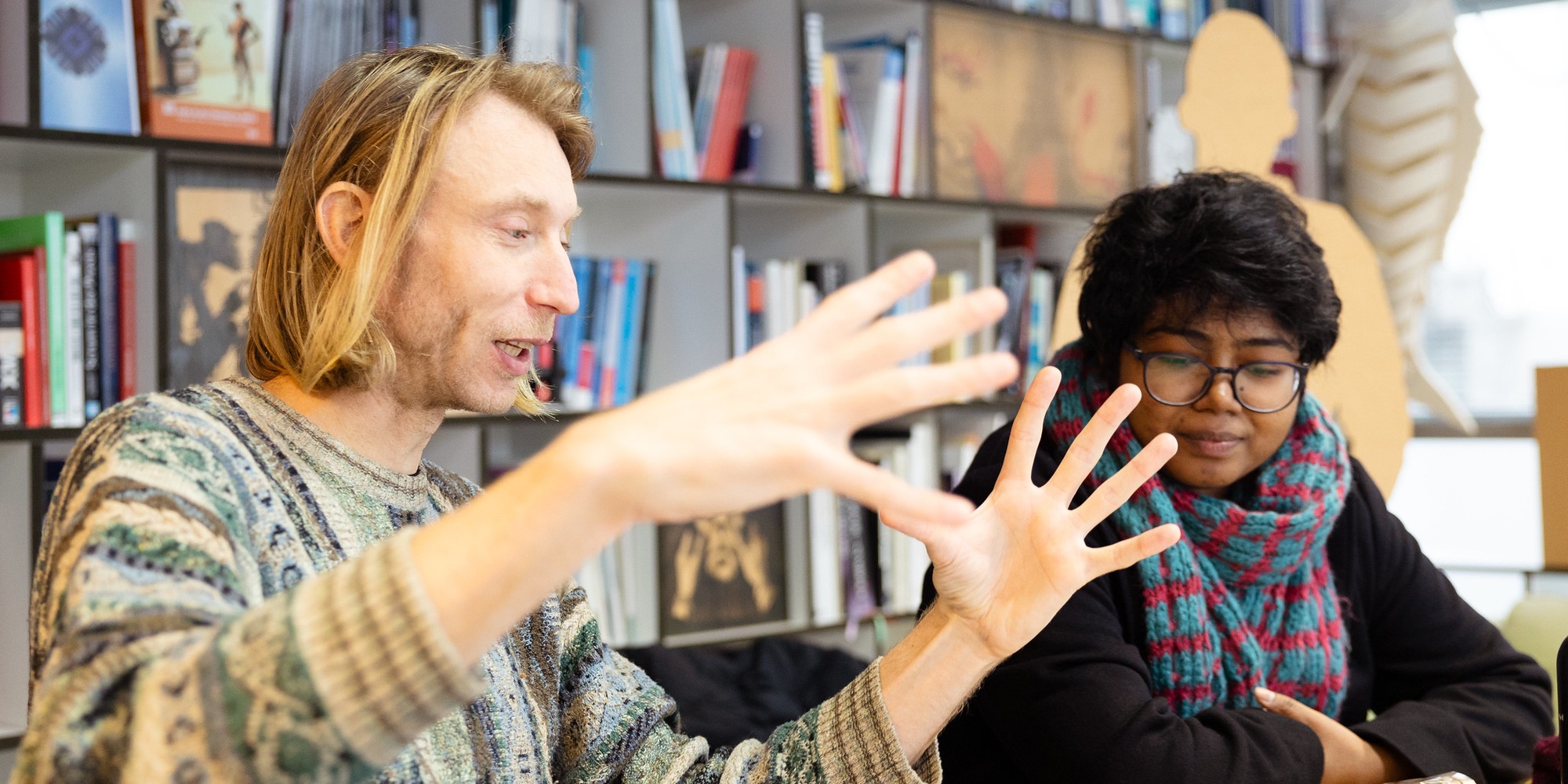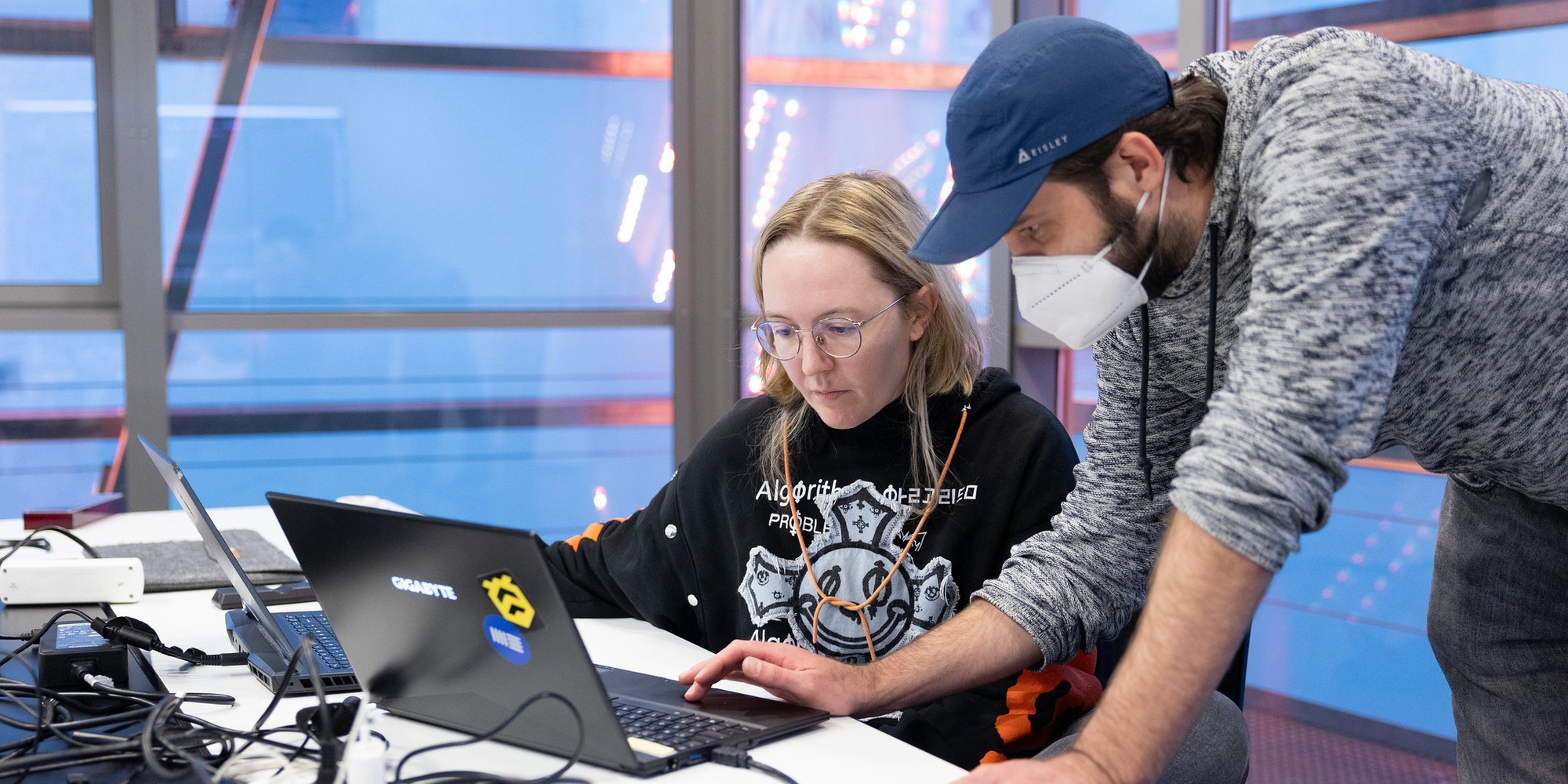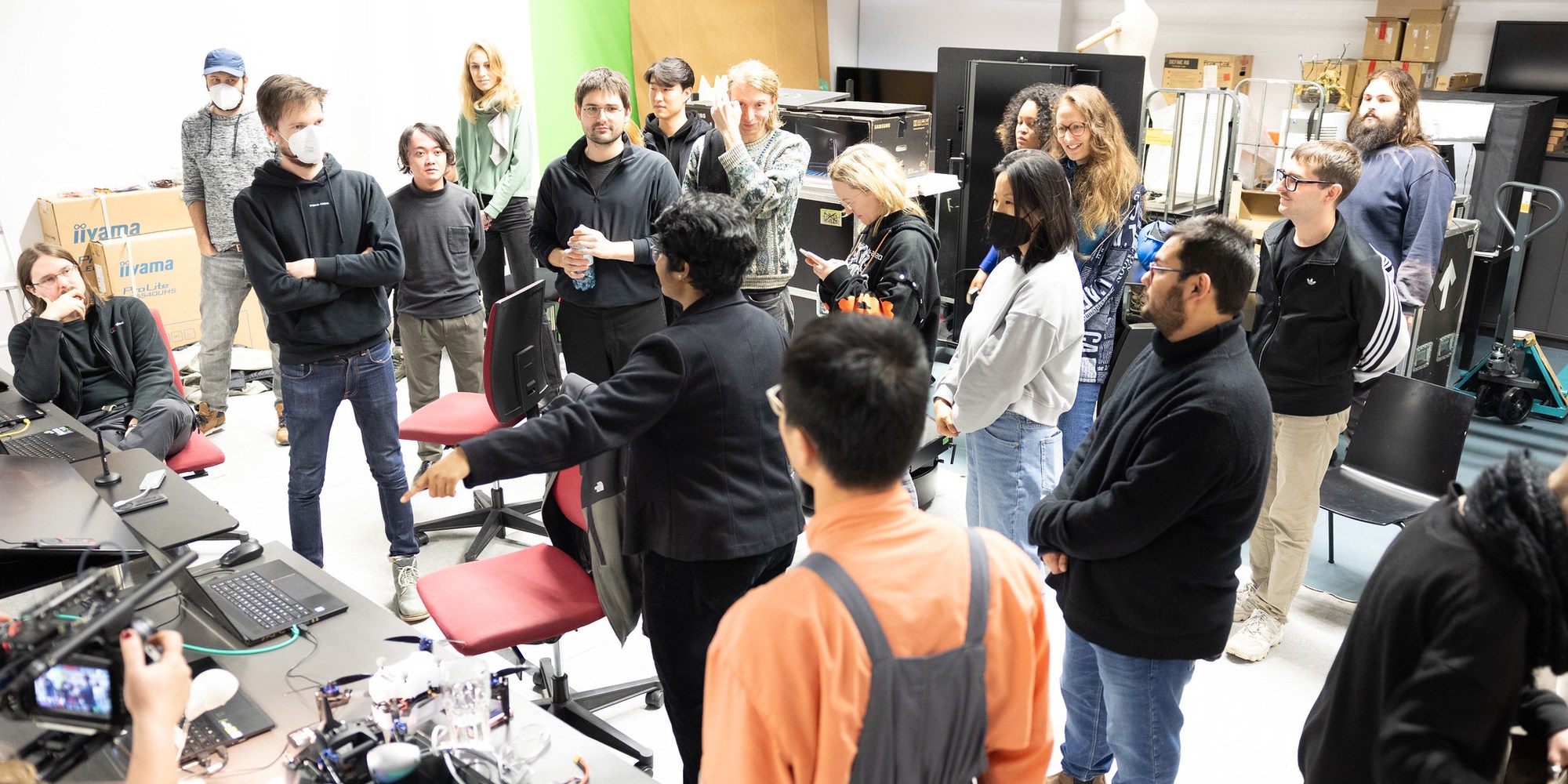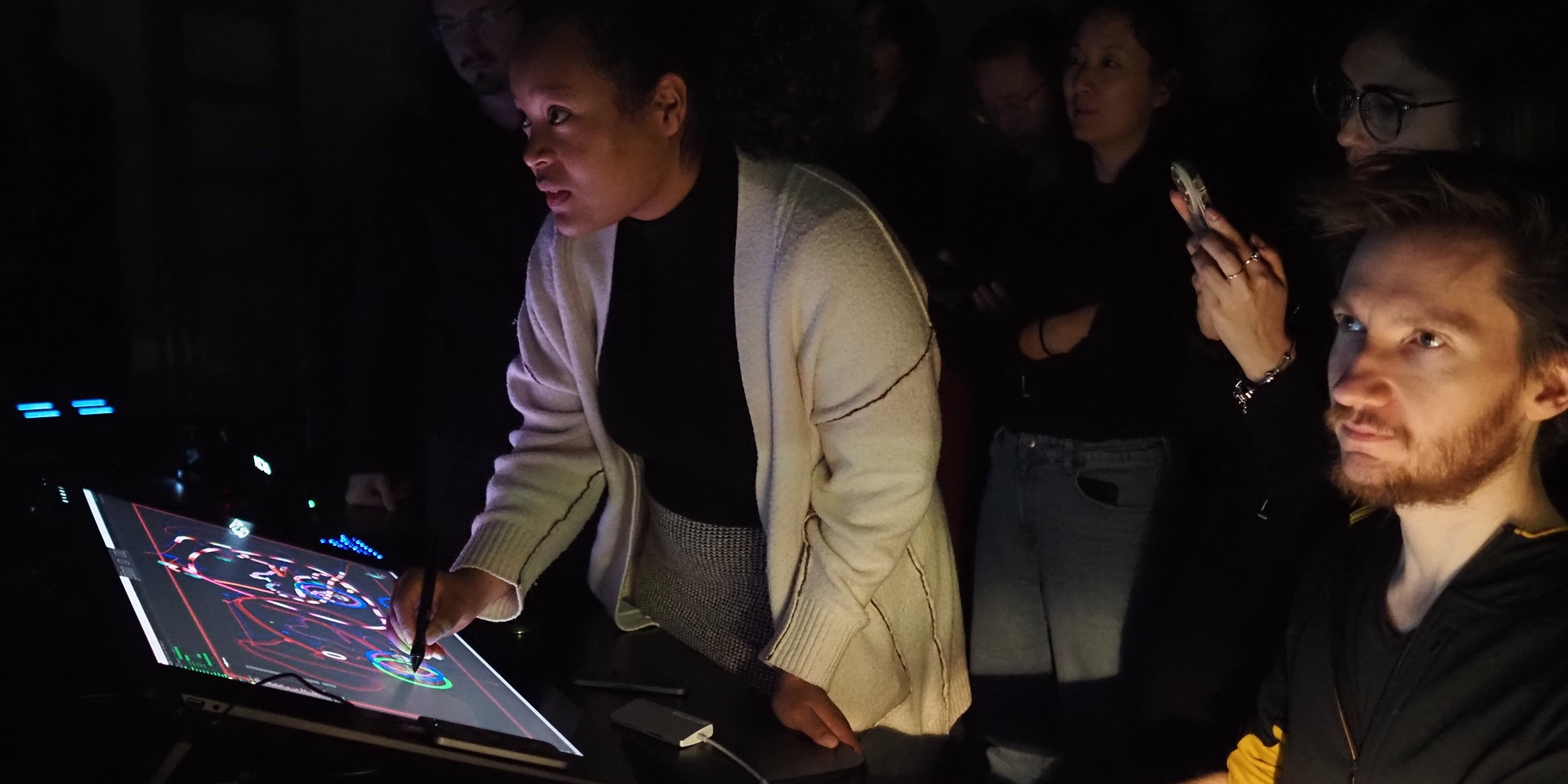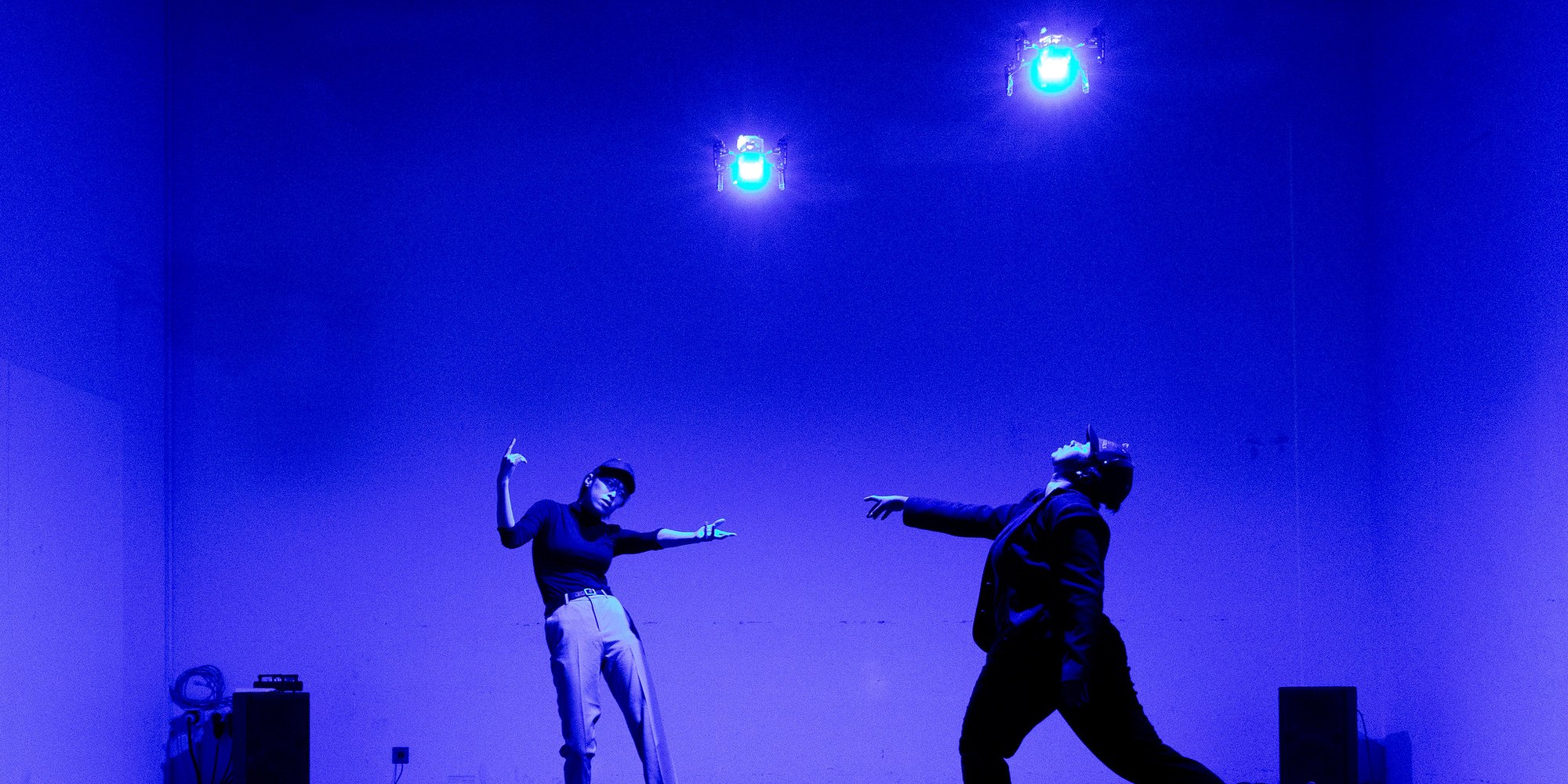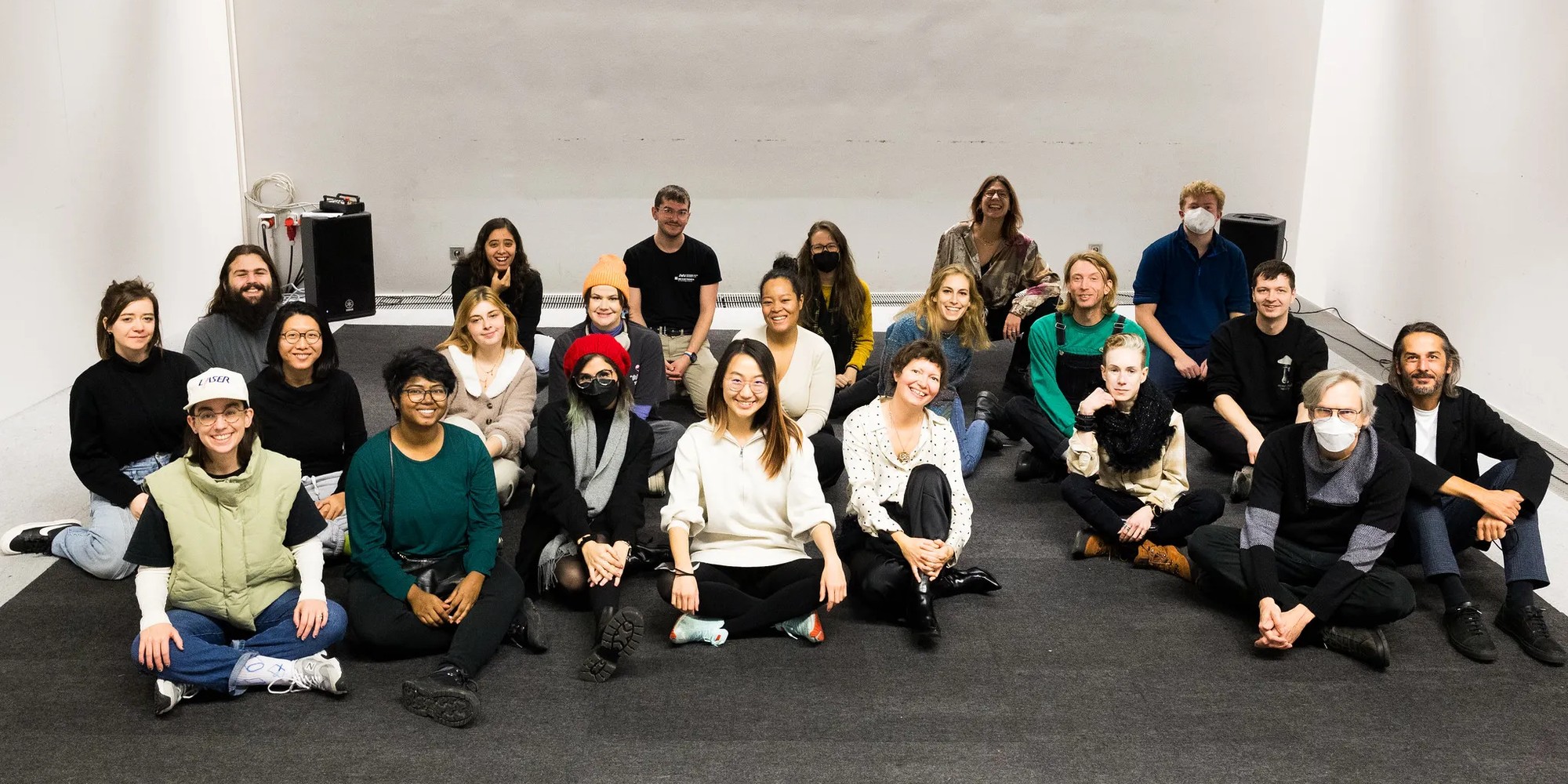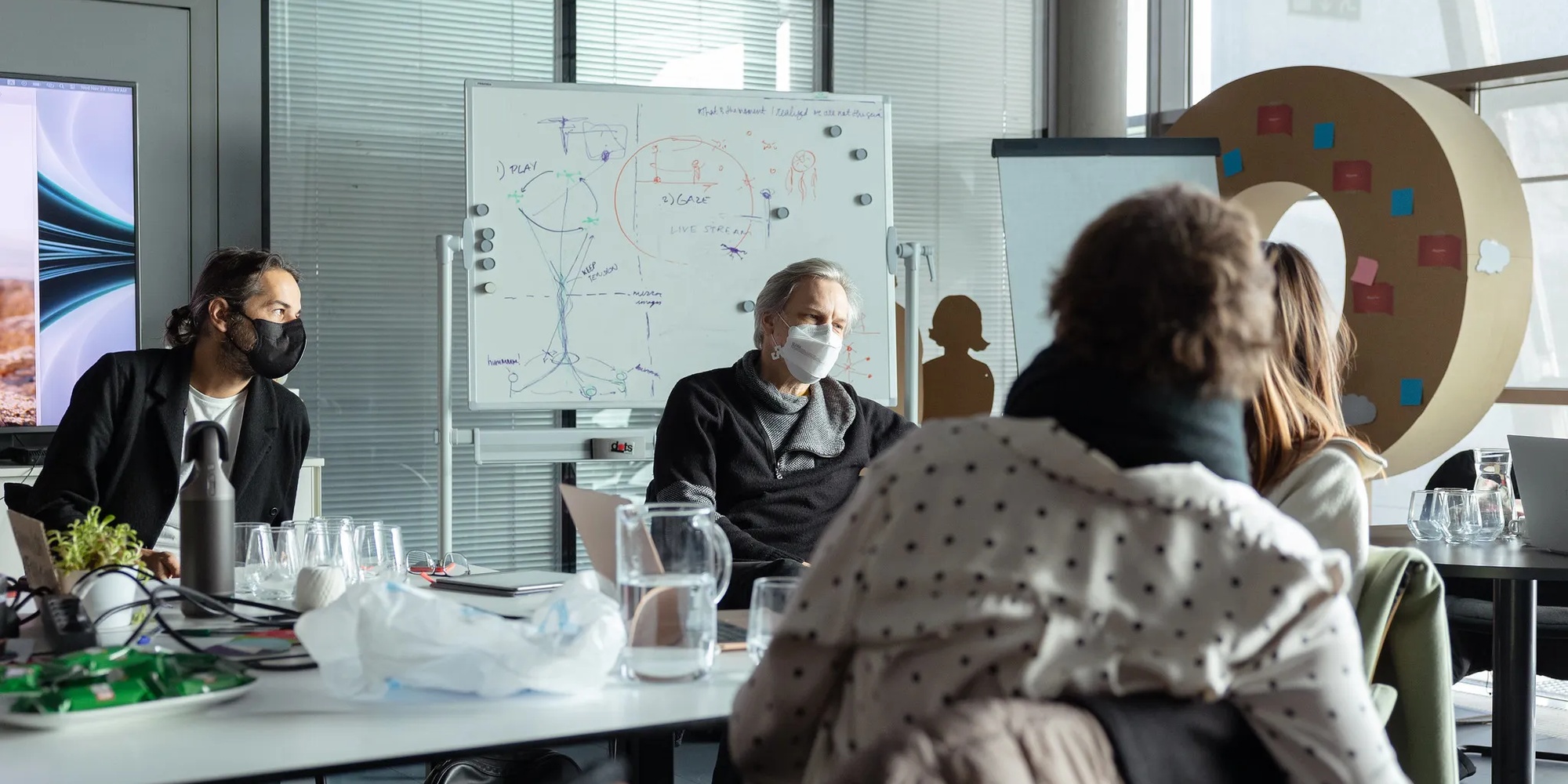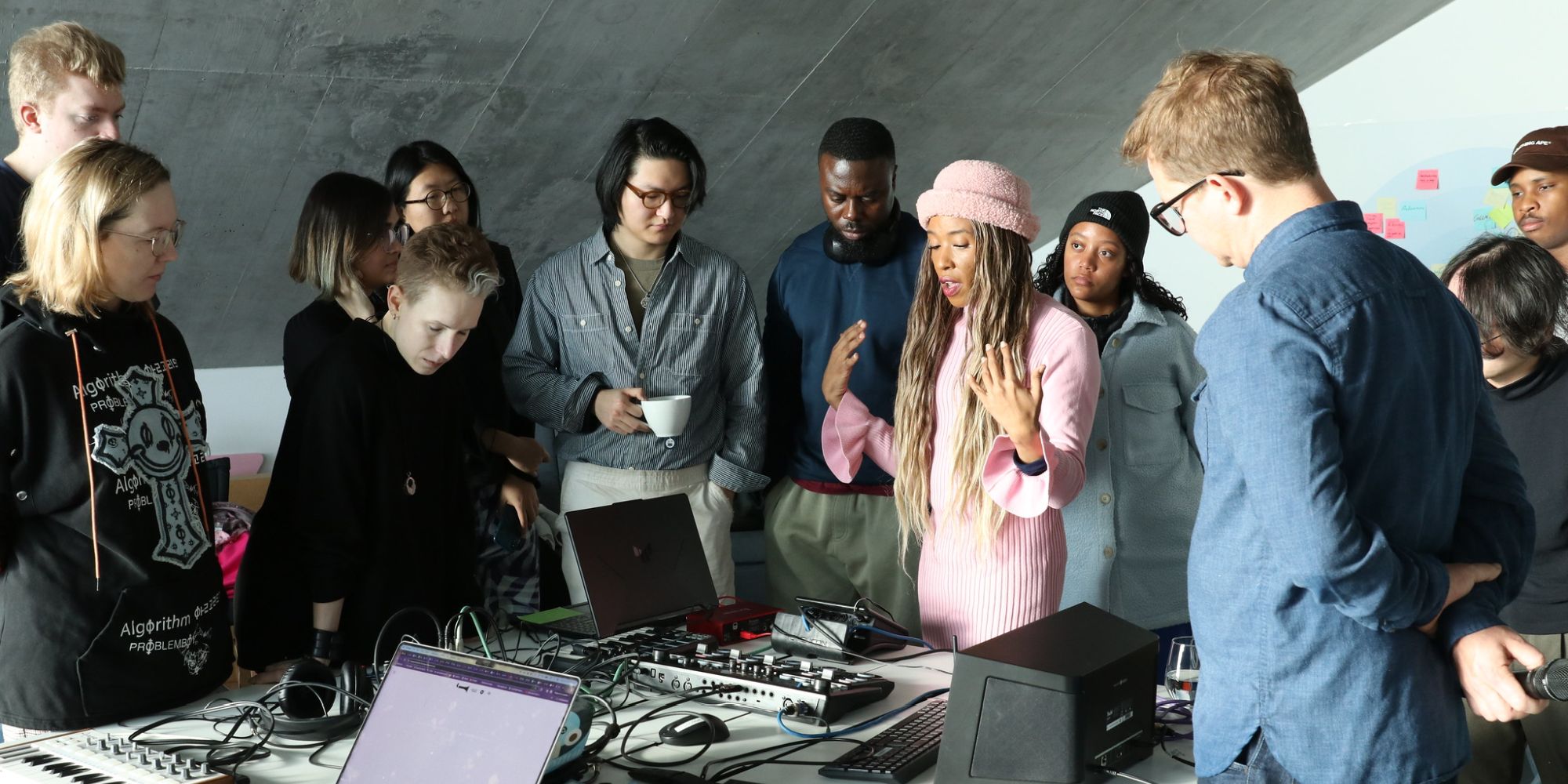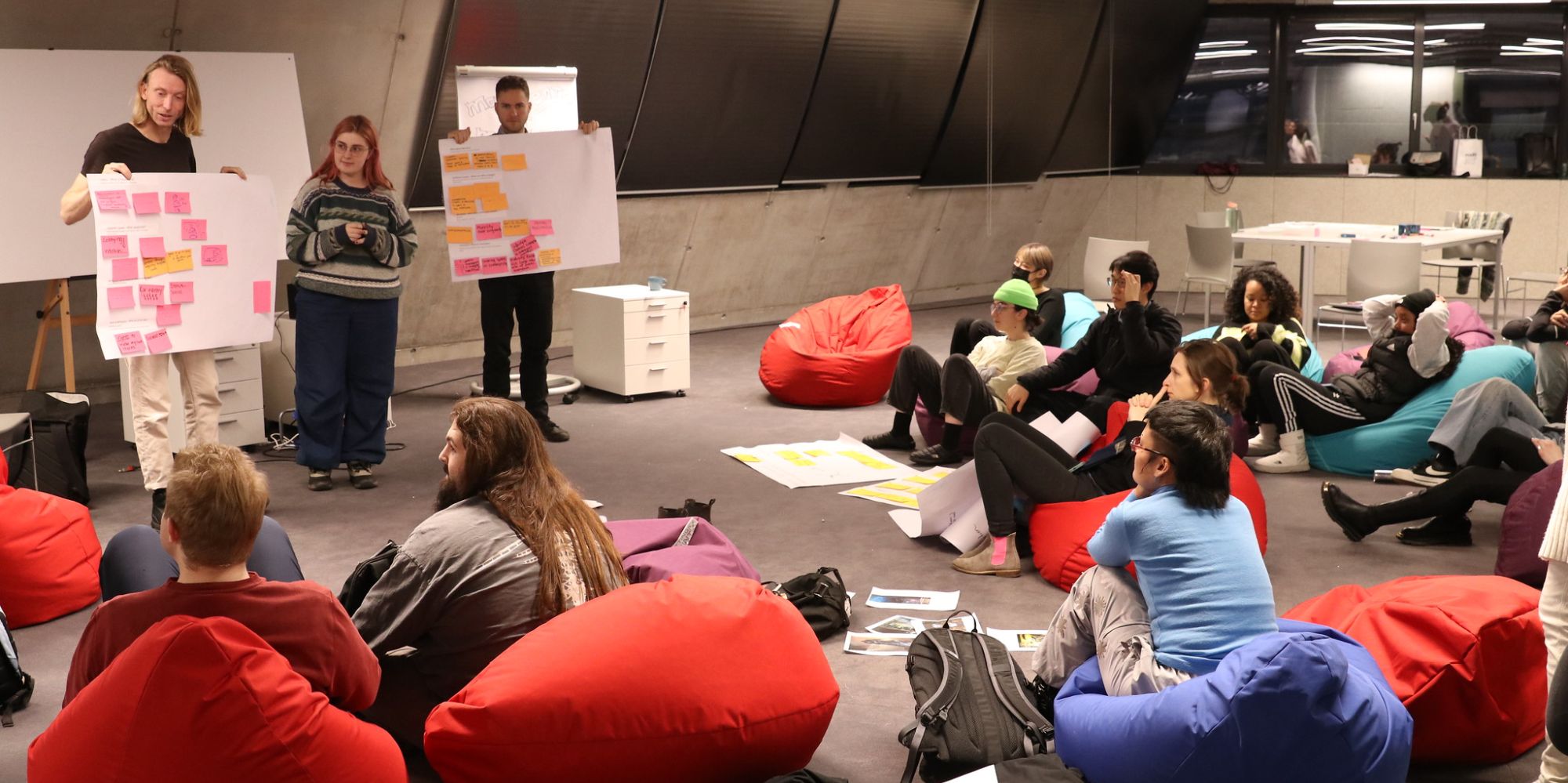The FOUNDING LAB Fall Term is a continuation of the FOUNDING LAB collaboration between Austrian university IT:U and Ars Electronica, spanning September 2023 to January 2024. IT:U started its operation in 2023 with the FOUNDING LAB, supported by experts of Ars Electronica including a team of Ars Electronica Futurelab members.
The overall goal of this collaborative prototype was to identify and develop new methods and formats for shaping a pioneering university. Within the FOUNDING LAB Fall Term, our Team was, among other things, responsible for the overall curation of the whole semester program, supporting the Fellows in the design and realization process of the education program, building an open membrane to the Ars Electronica projects, experience, and network.

This first experimental Fall Term at IT:U began after the FOUNDING LAB Summer School and Forum, where 75 Students and 21 Fellows from around the world and across more than 100 disciplines outlined their future scenarios for the new university. The FOUNDING LAB Fall Term with 25 Students and 21 Fellows served as a prototype for testing the feasibility and sustainability of their visions with a focus on interdisciplinary and project-based work, incorporating scientific methods as well as artistic thinking, and thus creating an environment that fosters trans-cultural and critical engagement. The results were presented to the public at a final event on January 25th, 2024.
The FOUNDING LAB Fall Term Program
Led by Ars Electronica’s Festival-Prix-Exhibitions department, a joint team from Ars Electronica Futurelab and staff from the FOUNDING LAB Summer School shaped the FOUNDING LAB Fall Term concept.
Divided into six thematic blocks, the FOUNDING LAB Fall Term addressed core aspects of digital transformation: the physical infrastructure of technologies, data and code, robots, machines and tangibles, interfaces and visualizations, the role of media, as well as the political diplomacy of digital society. Together with the Futurelab Catalysts, the unconventional mix of Fellows from all over the world opened entirely new perspectives for Students, creating an international dialogue far beyond single fields of expertise. In their eclectic composition, the FOUNDING LAB Fall Term Chapters were conceptualized as a learning buffet for skills, mindsets, methodologies, and practical exercises for the individual Fall Term projects of the Students. Experimental workshop settings and excursions to local industry partners invited Students to explore different facets of their research topics.

For four months, the Students worked on individual projects that united various disciplines. This process was designed and continuously supported by an experienced Facilitators from our team. In addition to individual guidance by Fellows on-site in Linz and through online mentoring sessions, also Deep Dive Talks by renowned experts offered insights into their respective fields. Guiding Students toward scholarly work, exploring research methods, and experimenting with artistic approaches were constants throughout the semester. The Art Thinking approach, developed at the Ars Electronica Futurelab, was used to provide Students with an innovative framework for discursive engagement and critical reflection.
The whole process was accompanied by an active feedback and evaluation process. The close communication between Students and team allowed to accommodate and challenge the individuals within this project-based, interdisciplinary framework with an additional focus on the enriching transcultural mediation aspects of this constellation.
Students’ Projects and FOUNDING LAB Event
One key element of this interdisciplinary project-based program format was the Students’ Fall Term projects. The Master and PhD Students brought their ideas – inspired by different backgrounds, their fields of study, and areas of interest. The fine-tuning happened in the overarching collaborations that aimed for mutual support and collective growth, accompanied and guided by the experienced Fellows and the Facilitators.
On January 25, the Student’s Fall Term projects and processes went public. At IT:U’s Open House, visitors could explore projects and gain insights through talks moderated by IT:U president Stefanie Lindstaedt, founding members Katja Schechtner and Christopher Lindinger, and Ars Electronica’s Artistic Director Gerfried Stocker. In the evening at the Ars Electronica Center, Students’ performances took place in Deep Space 8k. The FOUNDING LAB Event marked the conclusion of a Fall Term filled with challenges and personal growth.
Making-of the FOUNDING LAB Fall Term
After an Open Call to find the Fellows that would bring the chapters to life with their individual expertise, the Fall Term program was then realized in Linz – supported by the IT:U Founding Convent and staff who enabled the development and implementation of this project.
Before each chapter block, a Zoom-in call previewed upcoming topics, Fellows, and materials. In an online workshop inspired by Ars Electronica Futurelab’s Art Thinking, Students and Fellows collaboratively crafted questions guiding program exploration. After each block, a Zoom-out call fostered reflection, aligning experiences with the broader vision of a 21st-century university. Futurelab members also supported and mentored the Students in the realization of their individual projects, fermented the FOUNDING LAB experiences into meaningful learning outcomes, and brought together the different project threads in a final public FOUNDING LAB Event in January 2024.
While the Summer School and Forum were designed to be fuelled by the creative collisions with the Ars Electronica Festival contents and protagonists, the goal of the Fall Term was to explore the potentials and limitations of new forms of collective action and to create learning environments for all its participants – team, Students and Fellows alike. Focusing not primarily on knowledge transfer but on creating a space where we can all ask the right questions to learn from each other. At its center lay the prototyping of a test bed for a curriculum concept that tackles some of Ars Electronica’s – and especially Futurelab’s – core topics:
- interdisciplinary project work between art and application,
- digital transformation facets and its impact on society,
- Art & Science Research that dissolves creative boundaries and discipline-based thinking,
- international collaboration on evergreen topics like Artificial Intelligence, (virtual) realities, code, robotics,
- or societal and political discourse surrounding these developments.
Here the researchers and artists from Ars Electronica Futurelab could not only contribute with their personal experience from their daily work in interdisciplinary R&D and artistic exploration, but also offer their open minds for the content development and thematic discourse with Fellows and Students.
FOUNDING LAB Fall Term On-site Chapter Program
Chapter 1: Birth, Life and Death of Infrastructure. Heavy Lift – the infrastructure to run the code.
Hosted by Gerhard Grimm, Darsha Hannah Hewitt, Vladan Joler, and Futurelab Catalyst Otto Naderer
Chapter 2: Data & Code. Soft Wars – data, code and models that run our lives.
Hosted by Arianna Salazar Miranda, Roland van Dierendonck, Paolo Cirio and Futurelab Catalyst Friedrich Bachinger
Chapter 3: Robots, Machines and Tangibles. Moral Machines – Living with robots that care and scare.
Hosted by Edwina Portocarrero, Nan Zhao, RAY LC and Futurelab Catalyst Peter Holzkorn
Chapter 4: Interfaces & Visualizations. Intangible Worlds – The Reality of the Virtual.
Hosted by the Fellows Dietmar Offenhuber, Jiabao Li, Barbara Lippe and Futurelab Catalysts Peter Freudling and Peter Holzkorn
Chapter 5: Media. Fake, Re-check, Double Check – A new civic media contract in the age of AI.
Hosted by Ziv Green Epstein, Sarah Kriesche, David McDonald, Umlilo Siya and Futurelab Catalysts Nicolas Naveau and Denise Hirtenfelder
Chapter 6: Chapter 6: Digital Society & Policy. Tech-diplomacy – Movements and Mobilities among Nature, Tech, and People.
Hosted by Julia Kloiber, Alex Putzer, Lukas Fuchs, Kamya Ramachandran, Elisabeth Windisch and Futurelab Catalyst Cyntha Wieringa
More articles on the FOUNDING LAB Fall Term can be found on the Ars Electronica Blog:
- Intersections of Technology, Society, and Environment in Mobility
- Disinformation, manipulation and the art of storytelling
- Discoveries beyond the surface: social dynamics, data visualisations and alternative realities
- Between machines and humankind: A glimpse into technological developments
- Soft Wars – Data, code and models that shape our lives
- Of digital systems, colonialist implications, and sustainable solutions for technology
Credits
Ars Electronica Futurelab: Friedrich Bachinger, Kerstin Blätterbinder, Chiara Croci, Peter Freudling, Barbara Habringer, Denise Hirtenfelder, Peter Holzkorn, Otto Naderer, Nicolas Naveau, Anna Weiss, Maria Pfeifer, Cyntha Wieringa
Further team members: Magdalena Giegler, Bart Grabski, Regina Sipos, Iris Tschank
